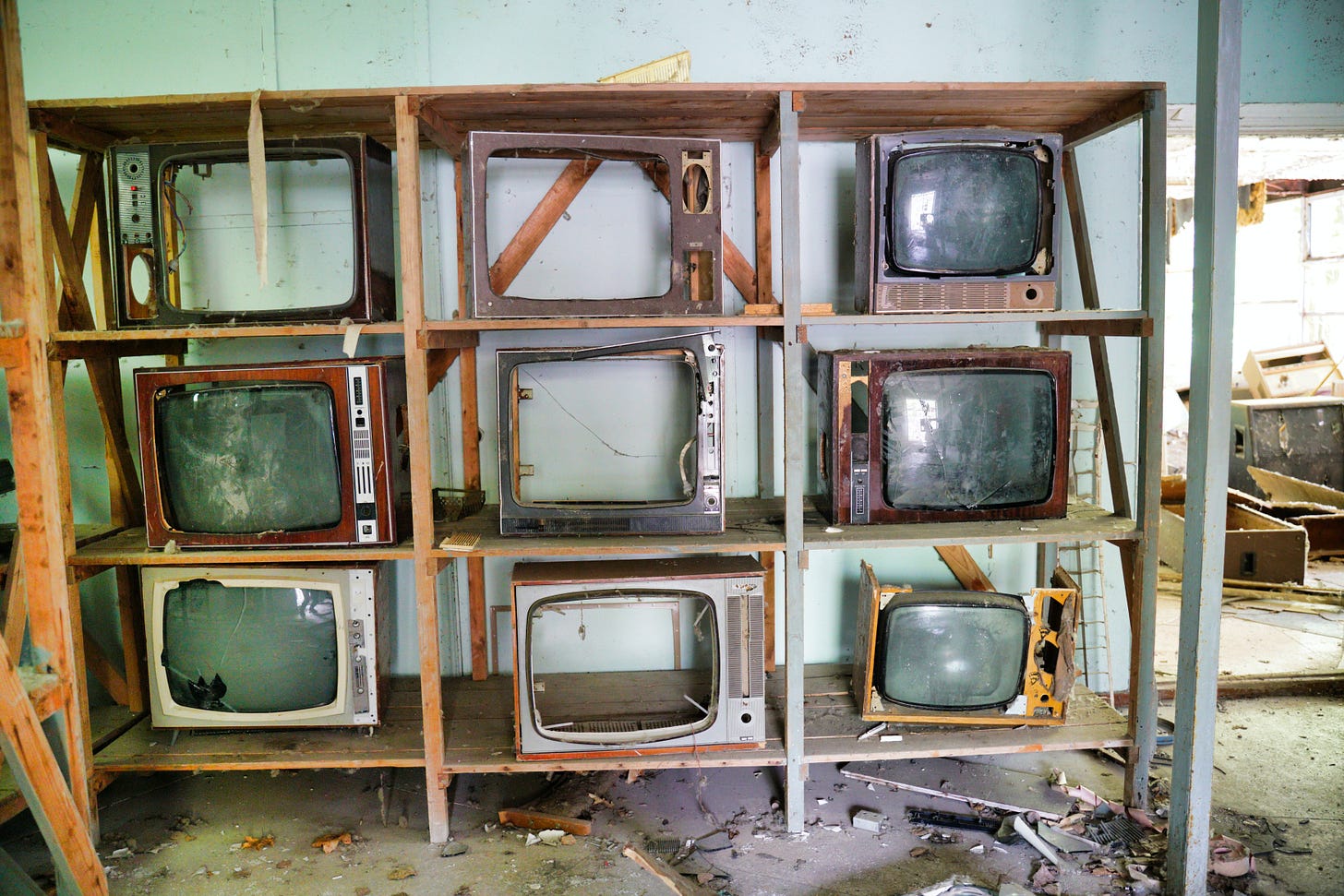Sounding off on screentime 🔇
Turn off those webcams, because 2021 is the year for your ears.
Welcome to Uncultured, keeping you productively distracted since July 2020. Sign up for free to get weekly updates in your inbox.
Screens are overrated.
A year ago, Zoom could do no wrong. The videoconferencing platform was an easy winner in those early pandemic days. If we were all going to be stuck indoors at home, at least we could still approximate the face-to-face experience.
In no time, the brand lived up to its onomatopoeic billing, becoming a household name, even a verb: “Let’s Zoom!”
A year later, it’s become a syndrome: Zoom fatigue.
What happened? Oh, a little thing called reality. Months of bad wifi connections, grotesque camera angles, embarrassing gaffes, Zoom-bombing, fussing with ring lights and retro radio-styled mics and unruly Covid hair, screen-to-screen meetings started to evoke not excitement but dread.
At some point, many of us asked: can’t we just talk on the phone like in the before times?
This is what’s made the Clubhouse app zoom into our collective consciousness in 2021. You mean I can chat with friends, meet strangers, and drop in and out of seminars without tidying my bookshelf first? Sign me up!
This year, video is out, audio is in. And there’s no better symbol of this shift than the weird disembodied celebrity heads and awkward technical hiccups that dominated Sunday’s Golden Globe Awards.
If the last year hasn’t proved that videoconferencing actually kinda stinks, watching Hollywood stars in their living rooms, some wearing hoodies, delivering glitch-ridden acceptance speeches was the clincher.
Good riddance.
This is the year we binge less on TV shows, more on podcasts. The year “virtual” becomes a dirty word. The year we start cutting the cord on streaming services. The year the Grammys outshine the Oscars. The year we dust off our land lines to reach out and touch someone. (Click to tweet this)
“This is a very serious matter,” says Inspector Brown over the phone, a note of concern in her voice.
My family has been taking turns explaining the real-life issue that’s plagued us for more than a year: the Case of the Half-Eaten Food Left on the Windowsill. We suspect it’s a squirrel with a well-developed palate that leaves offerings of partially digested pizza, bagels and fruit, but we’ve never been sure.
“Okay, this is sort of strange,” Brown says suddenly. “I just had a text message pop up on my phone. Not from a number that my phone recognizes. And I think it's related to your case.
“Wow,” she continues. “It's the squirrel. It's texting! Do you mind if I quickly take a look at the message and I'll call you back in a few minutes? … I don't think we should let this get away from us.”
She hangs up, leaving us in silence, amused and more than a little intrigued.
The performance is our own personal episode of the Ministry of Mundane Mysteries, a brilliant piece of improvised “telephonic investigation” developed for the pandemic by Toronto’s Outside the March theatre company. For $45, my family enjoyed an hour of mystery comedy, with a surprisingly complex storyline of sinister squirrels, entirely over the phone.
In a year with precious little new theatre, the Ministry proved a genuine hit, with 1,174 cases in 22 countries to date. The format expanded to theatre companies in Lima, Mumbai and, coming up next, Chicago, while Outside the March’s own inspectors go on hiatus.
My point? All the things we like about screens — the drama, the stimulation, the human connection — can be had, sometimes better, without them.
Sure, not everyone has screen fatigue, and there are some for whom a room feels naked without at least three monitors broadcasting at once.
And this is not to say I’m disavowing TV, that I won’t be lining up Friday to watch Coming 2 America on Prime. Oh, I will be.
But when I chat about it with friends afterwards, you can guess the one platform I won’t be using.






